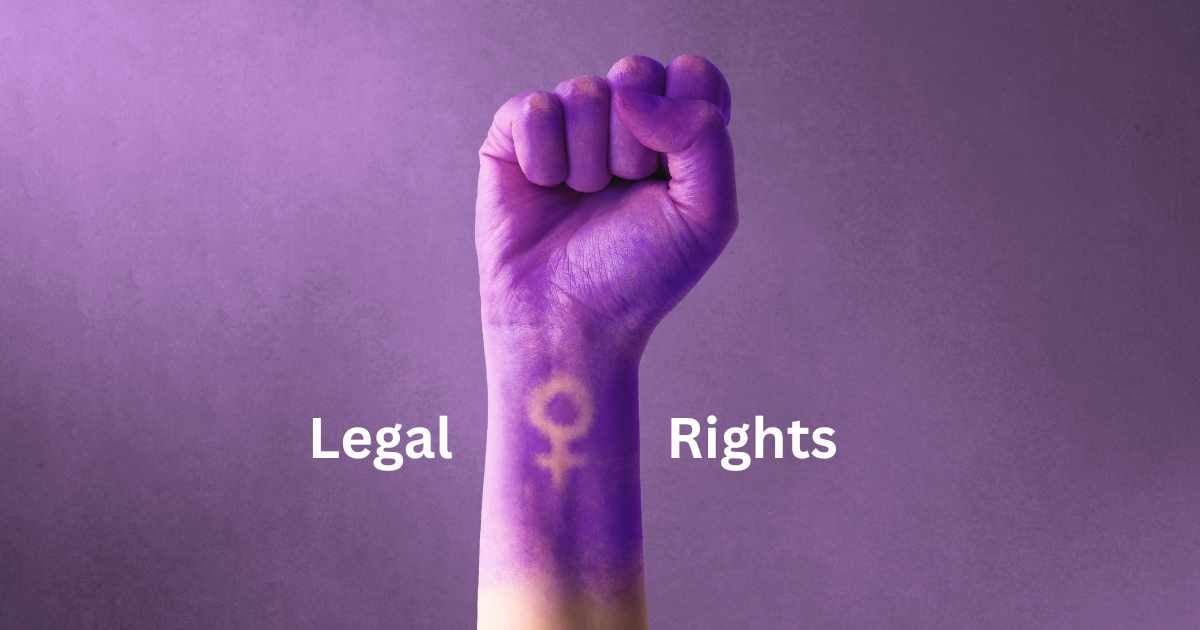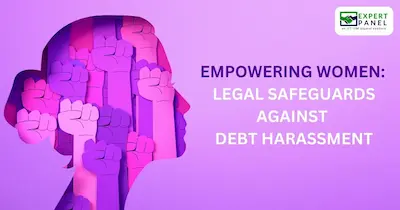· Debt Harassment · 4 min read
Women’s Legal Rights Against Financial Harassment in India
Legal rights every woman in India must know to protect herself from harassment by recovery agents or banks during debt collection and loan disputes.

Financial harassment of women, especially when linked to loans, credit cards, or debts, is a growing concern in India. While debt recovery is a legal process, the methods used by some lenders or recovery agents often cross the line, becoming harassment. Many women borrowers are unaware of the strong legal protections available to them. If you are a woman facing financial harassment, this blog will help you understand your rights and remedies.
1. Unique Challenges Women Face
Women borrowers often face challenges beyond just repayment reminders. Many women have complained that recovery agents call them during odd hours, speak inappropriately, or even threaten to inform family members. Some women are targeted simply because the banks or agents believe they’re “soft targets” who can be easily pressured.
Married women, single mothers, and even working professionals often face extra mental stress when these agents use social stigma as a weapon — threatening to “expose” them or talk about their debts in their neighborhood or workplace. This not only affects mental health but also invades personal dignity.
2. Laws That Protect Women Borrowers
You should know that no bank or agent has the right to harass you, regardless of your loan status. Here are some key protections for you:
● RBI Guidelines: The Reserve Bank of India clearly states that recovery agents must behave ethically and respectfully. They cannot threaten, abuse, or harass any borrower — male or female.
● Indian Penal Code (IPC): Sections related to criminal intimidation, insult to modesty, stalking, and verbal threats can apply if agents cross the line.
● Domestic Violence Act: If harassment spills into family-related financial abuse, women can seek protection under this law.
● Information Technology Act: If your details are being shared publicly or misused online, this law provides remedies.
3. Harassment & Mental Health: Legal View
Repeated calls, threats, or mental harassment by banks or agents can severely impact mental health. The law recognises this. Mental harassment can be treated as cruelty, and if harassment affects your peace, dignity, or health, you have every right to complain.
Some women suffer anxiety, depression, and even suicidal thoughts due to such recovery harassment steps. It’s important to act before it strips all morals of ethical practice.
4. Filing a Gender-Sensitive Complaint
If you are being harassed, make sure to:
● File a written complaint with the bank’s grievance cell.
● Mark a copy to the Banking Ombudsman (RBI).
● Approach the National Commission for Women (NCW) if the harassment involves gender-based misconduct.
● Report to the local police if you feel unsafe or are receiving threats.
When writing complaints, clearly mention that you are facing gender-based harassment and insist on a woman officer handling your case wherever possible.
5. Can You Claim Damages?
Yes, you can. If harassment has led to mental trauma, defamation, or loss of dignity, you can:
● File a civil case for damages.
● Seek compensation through consumer forums.
● Request mental harassment damages in your complaint through the courts.
Courts in India have previously ordered banks to pay compensation to borrowers who faced wrongful harassment.
6. Success Stories: Lawyer Panel’s Support for Women in Debt
There have been many successful cases where women, with the help of legal teams, have fought back against banks and recovery agencies. Several NGOs and women’s rights organisations now actively support women in such cases. These legal experts help women:
● Stop harassment calls.
● Negotiate settlements respectfully.
● File cases if necessary.
Always remember: You are not alone. Legal help is available
7. Helpline & Legal Aid Info
If you need help, these resources are available:
● National Commission for Women (NCW) Helpline: 7827170170
● Women Helpline (All India): 1091
● RBI Banking Ombudsman: Check RBI’s official site for state-wise contacts.
● Legal Aid Authority (Free Legal Aid): Apply through your local District Legal Services Authority (DLSA).
Final Words
Being in debt doesn’t strip you of your dignity as a woman. No bank, agent, or person has the right to violate your dignity for financial reasons.


.WPyFdNSA.jpg)
